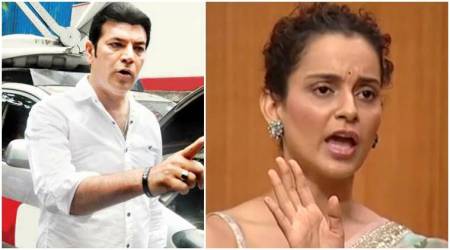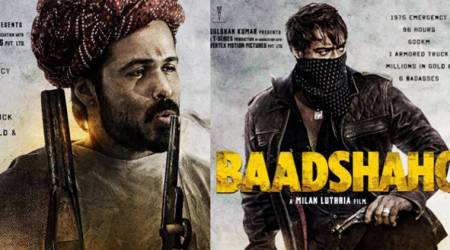 Union Home Minister Rajnath Singh (Source: PTI/File)
Union Home Minister Rajnath Singh (Source: PTI/File)
UNION Home Minister Rajnath Singh is likely to visit Jammu and Kashmir for three days, from September 9 to 11, to engage with various stakeholders and review security. His visit comes less than a month after Prime Minister Narendra Modi, in his Independence Day speech, said his government was committed to the “lost glory” of Kashmir. “Na gaali, na goli, parivartan hoga gale laga ke (Neither bullets nor brickbats will solve the Kashmir issue, only love will)… I want to tell the youth of Kashmir… come into the mainstream, you have a right to speak in a democracy,” the PM had said.
Singh is expected to reach Srinagar on September 9, and will later travel to Jammu and Leh. He is likely to hold discussions with Chief Minister Mehbooba Mufti and other key officials of the security establishment, including the Army. The issue of Article 35 A is likely to be raised during his discussions with Mufti, said Home Ministry officials. Singh is also set to meet Jammu and Kashmir Governor N N Vohra.
Singh’s visit is likely to coincide with the visit of a Congress delegation led by former Prime Minister Manmohan Singh. According to officials, the Congress team is slated to visit the state from September 10 to 16. The delegation will include Jammu and Kashmir party in-charge Ambika Soni and Leader of Opposition in Rajya Sabha, Ghulam Nabi Azad. They are likely to discuss the prevailing political situation and reach out to civil society, said officials.
Singh last visited the Valley on September 4 last year, at the peak of the unrest triggered by the death of Hizbul Mujahideen commander Burhan Wani. Singh had ordered a review on the use of pellet guns by CRPF, and instructed security personnel to use pellet guns as a last non-lethal attempt to control protesters.
This time, Singh’s visit comes at a time when there is a decline in overall violence in the Valley.
A group of citizens, led by former Union Minister Yashwant Sinha, had visited Jammu and Kashmir on August 17-19 and prepared a report which said the sense of “dismay and despondency” had grown in the Valley and there was “all-round opposition to attempts to revoke Article 35A”.

